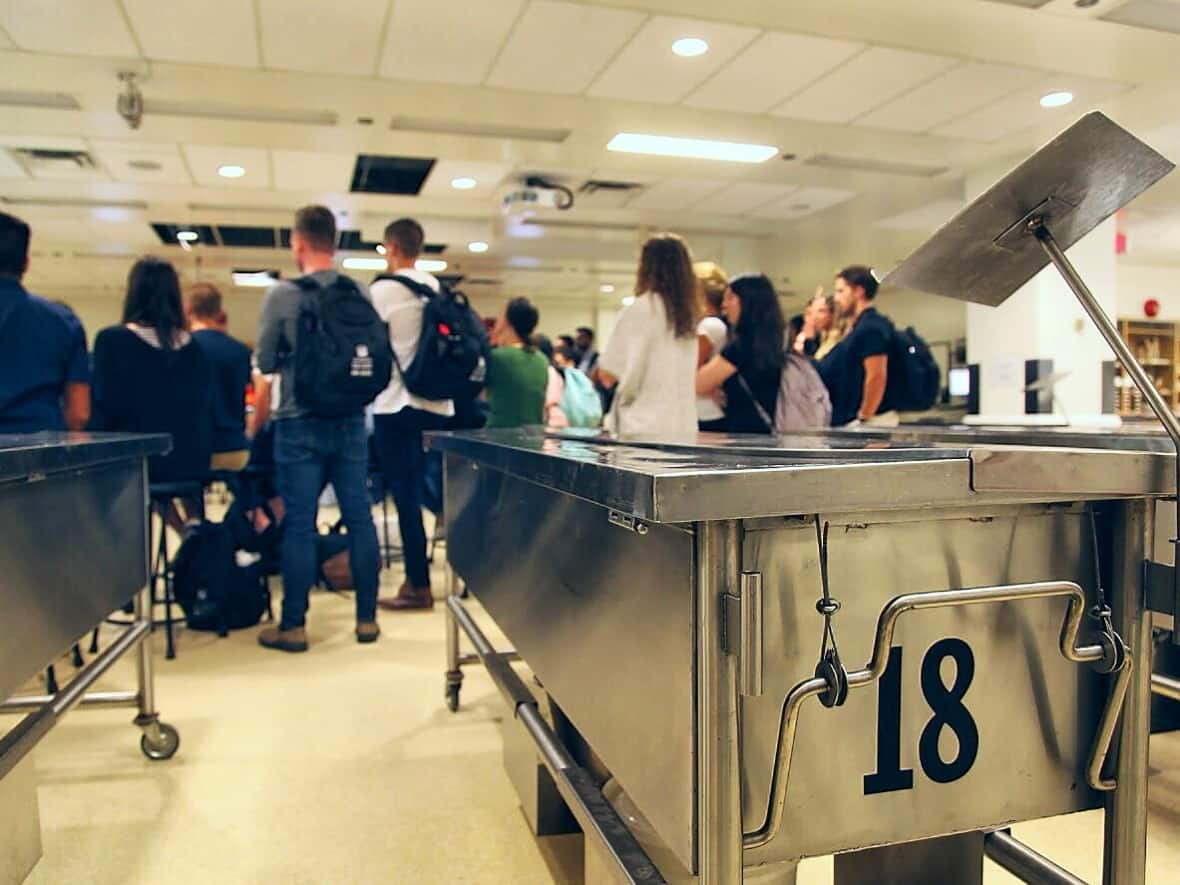Some Canadian med schools are running low on a precious resource — cadavers

Human cadavers are a key teaching tool for future doctors and dentists, but in some medical schools, donations have dropped since the start of the COVID-19 pandemic. Officials are reminding people that body donations are important for research and education.
"In terms of learning, having a real human body, there is a superiority. It lets you actually feel and touch and look at the different structures in the way that they normally are, not in a synthetic cadaver or a 3D model," said Dr. Olusegun Oyedele, an associate professor in the department of cellular and physiological sciences at the University of British Columbia.
The Vancouver university has had trouble getting its usual number of donated bodies, as has Western University in London, Ont., where donations are down 20 per cent over pre-pandemic levels, said Haley Linklater, who oversees the body bequeathal program at the Schulich School of Medicine and Dentistry and manages the anatomy lab.
There are reports of body donations being down this year in Nigeria, Britain, Sweden and the United States.
"I would love to have 100 or more every year to be able to assist in all of our teaching and to contribute to our research, but we get a few less than that, usually 75 to 85," Linklater said.
"During 2020, we only had 18 donors accepted because we really weren't sure what the academic year would be like, but the following years, 2021 and 2022 thus far, we've only had 60 to 65 donors."
'First teachers'
Linklater isn't sure what to attribute the drop in donations to, though she suspects that people weren't able to have a funeral service for their loved ones during the pandemic and they want to have a body present for a more traditional service.
The next of kin play a big part in the donation, with donors usually wanting to help research or future med students because they've been helped in some way by the health system.

Both Western and UBC, as well as most other medical schools that use donated human bodies, teach students respect for the cadavers.
"The donors are truly their teachers. What we do to reiterate that kind of respect and reverence for them is we have a short service at the beginning of every academic year for each class to remind them that this is a sacred place, that they've been given a gift, and that they're expected to treat these donors as their first patients and their first teachers," Linklater said.
Armaghan (Army) Alam, 25, was an undergraduate engineering student when he took a human anatomy class at McGill University in Montreal. Students were shown human cadavers, and the experience made Alam change his major to medicine.
"The first one I saw was this 30-ish-year-old individual in perfect, pristine condition. It was very shocking and I felt a great deal of awe and gratitude that someone not much older than me made this decision to donate their body," said Alam, who is now going into his fourth year of med school at UBC. He organized a year-end memorial service for the cadavers, to which loved ones are invited.

"It's an honour and a privilege to have this learning experience, a very special experience," Alam said. "I had one cadaver who had tattoos, and we decided to try not to cut through any of the tattoos if we didn't need to, because this person, we didn't know their exact story, but this person had a long and impactful life. It was a reminder to be incredibly respectful and mindful."
Each human body is different, intricate and detailed, and that's not something you can learn in a textbook, Alam said.
That's why med schools hope that the dip in cadaver donations is a blip, rather than a trend.
"I like to have personal conversations with potential donors, to reiterate that not everyone can be a donor, that they have to let their next of kin know, that they need to hire a funeral service to transport their body to us," Linklater said.
An end-of-year memorial service leaves family members, staff and students with a sense of pride and gratitude, she added.


